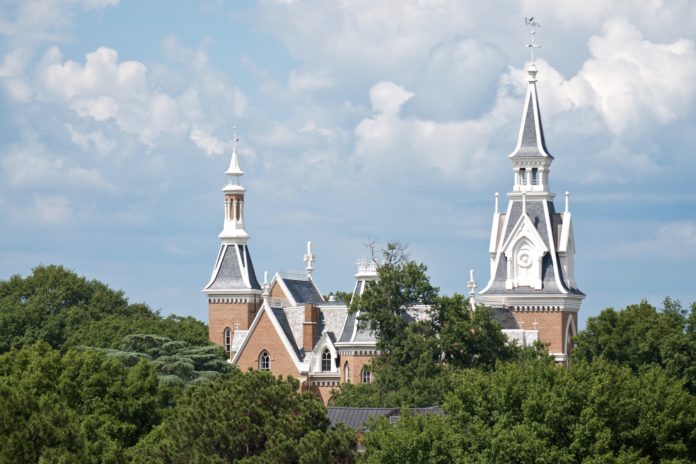(The following article was published Saturday, April 28, 2007, in the Macon Telegraph.)
By JENNIFER BURK
The city of Macon and Mercer University announced Friday a partnership that aims to refurbish a corridor that runs between campus and downtown to create more of a college town vibe.
The goal is to attract and retain more students and young professionals in Macon.
“This is about building or rebuilding this segment of our city,” Mayor Jack Ellis said during an afternoon news conference.
He and Mercer University President Bill Underwood said a new 15-member commission will look at creating a “College Hill Corridor.” The area runs from the campus and Tattnall Square Park along College, Columbus and Forsyth streets toward Washington Avenue and the heart of downtown.
Kevin DuBose, director of the city’s Economic and Community Development Department, and Sarah Gerwig-Moore, an assistant law professor at Mercer, will co-chair the committee.
The plan is the brainchild of four Mercer students who took what they learned in class and applied it to Macon. The class, “The Fate of the City,” taught by associate provost Peter Brown, looked at how to connect the city with the university, said Matt Wetherington, a Mercer senior who took the course.
Linking the two would retain the people who determine the future of a city: those who grow up there and those who go to school there, he said.
The students developed a plan of how to close the gap between Mercer and downtown and created the College Hill Corridor. They presented the project to Underwood and then tried to get other organizations on board.
“Every contact we made was just into it,” said Kimberly Humphries, a senior involved in the project. “We can only do so much by ourselves. We need some support.”
The students’ plan involves a branding campaign, beautification of the area and identifying retail opportunities.
Mercer already is in the process of recruiting potential retail development to vacant space it owns near campus, Underwood said.
“It’s just not any retail development that (the students) are looking for,” Underwood said. “They told me it had to be cool.”
Underwood said he hoped to announce new retail establishments for the area in two to three weeks. The university owns a buildingjust off Montpelier and Linden avenues, which, with the exception of a Georgia Public Broadcasting bureau, is mostly vacant.
The university also owns two more storefronts on Montpelier. The students’ plan suggests retail establishments such as a pizza parlor, off-campus bookstore, health food store, music center, coffee shop or any 24-hour business.
Part of linking the campus to downtown includes creating a walking path with amenities young people would be interested in. Key areas include Tattnall Square Park, the area around Joshua Cup on Washington Avenue, the Forsyth and College streets intersection, the Forsyth and New streets intersection and Appleton Lane.
At Tattnall Square Park, the students suggested a frisbee golf area, a jogging trail and basketball court.
Potential retail opportunities include the old Phillips 66 gas station on the corner of Forsyth and College streets and a former sign shop near Appleton Lane.
The students placed emphasis on making the corridor walkable and proposed that a pedestrian not have to walk more than 1,000 feet between amenities. This could be achieved by not only having retail establishments but also historical markers.
The College Hill Corridor project will continue work the city already had begun in trying to link the Pio Nono area to downtown and will include the redevelopment of a new Central High School and the old Miller High School, Ellis said.
“We want to make sure that the entire community is linked together from intown to midtown and into downtown,” he said.
The plan represents a shift in economic development strategy, focusing on young professionals between ages 24 to 35, otherwise known as the “creative class,” DuBose said.
The creative class is made up of people who generally are technologically advanced and tolerant of differences. They include professions such as software programmers, doctors, lawyers and artists who create jobs in the city and generally have the most economic buying power.
Universities produce these types of people, and making the city more attractive to college students will increase the chances of them staying following graduation, DuBose said.
The College Hill Corridor commission, made up of various city officials and representatives from community organizations, the John S. and James L. Knight Foundation and the Bibb County Board of Education, should meet for the first time this summer, Gerwig-Moore said.
She said she hopes to get a student on board.
The four students who started the project all are either leaving Macon or are undecided in their plans after graduation.
To contact writer Jennifer Burk, call 744-4345.










